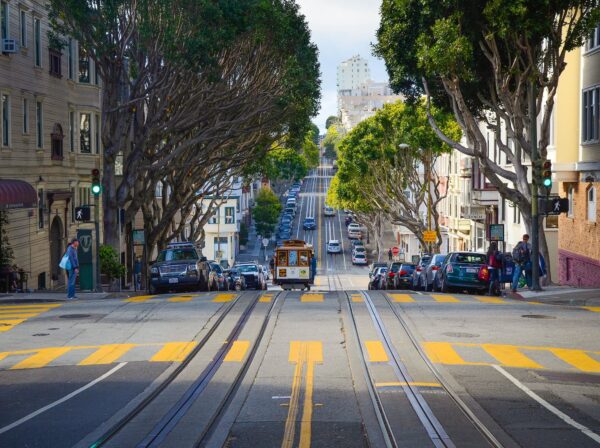‘Admission’: San Francisco Issues Official Apology to Black Residents for Centuries of ‘Systemic and Structural Discrimination’
San Francisco’s Board of Supervisors and the county have issued an official apology to the city’s Black residents for centuries of “systemic and structural discrimination, targeted acts of violence and atrocities,” according to a seven-page resolution from the board.
The city’s supervisors formally apologized on Feb. 27 in a resolution signed by all 11 board members, the Associated Press reported.
San Francisco issues official apology to Black residents for structural discrimination and racism. (Photo credit: Pexels)
The document acknowledges San Francisco’s lengthy history of creating and enforcing laws, policies and institutions that have led to racial inequity in the city, where the effects of redlining since 1937 are still seen today.
“Eighty-seven percent of redlined neighborhoods in San Francisco are low-income neighborhoods currently undergoing gentrification and Black residents have the lowest home ownership rates at 31%,” according to the resolution brought forth on Feb. 15 by the city’s supervisory board.
The city’s move to issue an official, blanket policy to its Black community for slavery and its lasting effects makes San Francisco one of fewer than 20 local or state governments to do so, according to the African American Redress Network.
“We have much more work to do but this apology most certainly is an important step,” said supervisor Shamann Walton, the resolution’s chief proponent and the board’s only Black member, according to the AP.
Boston became the first major United States city in 2022 to pass a similar resolution apologizing for its role in slavery with a pledge to repair past and present harms done to Black people.
Nine states including Florida, Maryland, New Jersey and North Carolina have issued apologies for their histories of “discrimination, violence and impact in the enslavement” of Black people, according to the resolution. California was admitted to the union in 1850 as a free state.
San Francisco County is made up of around 5.7 percent Black people and 50.8 percent white people, according to 2022 U.S. Census Bureau data.
The resolution noted that Black families living in redlined neighborhoods were denied loans and infrastructure upgrades while property values and wealth rose in majority-white neighborhoods.
The city also pointed out that its actions have played a role in a lack of affordable housing access, living-wage jobs and quality education for Black San Franciscans.
“An apology for grievous injustices cannot erase the past, but admission of the historic wrongdoings committed can aid us in solving the critical problems of discrimination and racism facing San Francisco and the broader United States today,” the resolution stated.
Last July in a nearly 400-page report, the San Francisco African American Reparations Advisory Committee, formed in December 2020, published final recommendations to include that both San Francisco’s city and county issue an apology for those past harms.
The committee’s report submitted last year also called for reparations in the form of providing a one-time lump sum payment of $5 million to eligible people as compensation “for the decades of harms that they have experienced,” and supplementing the income of Black residents to reflect the area median income — at least $97,000 — annually for at least 250 years.
San Francisco’s Black mayor London Breed has said she believes reparations should be dealt with at the national level, and her office has had to cut a proposed $4 million for a reparations office from the budget this year amid a budget crunch, the AP reported.
Sheryl Davis, the executive director of the San Francisco Human Rights Commission, said she felt the apology goes a long way.
“I think people want to be able to hold on to something that says that you realize and understand that there are impacts to the things that have been done, the systems that have been created, and the things that we have to sit and endure that are almost kind of reminiscent of, ‘watch yourself because you might be next,’” Davis said on Feb. 15 at a government audit and oversight committee meeting.
Cheryl Thornton, who identified herself as a concerned resident of San Francisco in a public comment emailed to the committee earlier in February, said she urged the committee to recognize that it will take more than an apology to address the “deep-rooted damage.”
Thornton wrote, “While this resolution is a commendable step forward, it is imperative that we also prioritize reparations to rectify historical injustices.”
A report and poll from the University of California, Berkeley last September showed that while 60 percent of California voters felt that slavery’s legacy still impacted the state’s Black residents today, 59 percent of California voters opposed the state’s Reparations Task Force’s recommendation to make cash payments to the descendants of enslaved Black people, with 44 percent saying they were strongly opposed to the idea.
The poll found that 76 percent of Black voters were most likely to back the idea of cash payments.

